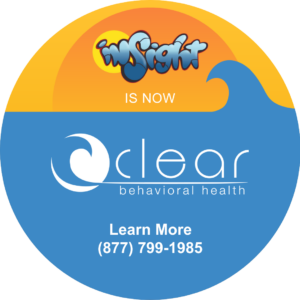Substance abuse can impact family members, friends, and colleagues of someone dealing with a drug or alcohol problem. Even actions with the best of intentions can lead to the entire family and social circle being impacted.
Even when a loved one is addicted, there are ways to support someone – even at rock bottom – and help improve behaviors and accept responsibility.
Understanding Substance Use Disorder
Substance use disorder is a disease. Think of someone you have a relationship with who is struggling or has struggled with cancer. Why would you treat an addiction sufferer any differently?
Physical health is impacted by excessive drinking, and it can lead to mental issues in life. The brain’s chemistry can be temporarily or permanently altered. Alcoholism can also be a family disease based on genetic disposition.
Over time, drugs and alcohol lead to various different behavioral changes. This can isolate or emotionally challenge family members and have a life-long impact on children.
There are several ways the disease impacts a loved one:
EARLY STAGES: At first, using drugs or drinks might be a coping or escape mechanism. A loved one might not realize at this point the chemical reaction happening in the brain, which forms the addiction.
MIDDLE STAGES: The loved one is now an addict who can’t resist the craving. More consumption is needed to satisfy the brain’s now-distorted chemistry. Organs are damaged, and behavior changes to feed the addiction.
RECOVERY STAGE: Even when seeking addiction treatment, there are physical side effects from withdrawal. The loved one tries in treatment to own up to the consequences of their actions while fighting a strong urge that elicits uncomfortable or painful side effects.
What Family Members Should and Shouldn’t Say To an Addict

Substance abuse disorder and addiction are physical and mental illnesses. The words and actions of families trying to offer support for addiction matter. Our natural instincts might lead us to say or do some unhelpful things.
THINGS YOU SHOULD SAY AND DO
Set Boundaries. Let the addicted loved one know what those good boundaries are and hold firm to them. This could be limiting the family member to see children only when sober or refusing to loan money to someone, even when they insist it’s for basic needs or personal needs.
Take Care of Yourself. When someone you love is hurting, you can lose focus on yourself. Getting proper nutrition, sleep, and support group therapy will better prepare you for every stage of coping with treatment, addiction, and recovery.
Learn About Addiction: Just like if someone you loved was diagnosed with cancer, Alzheimer’s, or diabetes, you’d do a lot of research about the disease and how to offer support. Being more informed about the unique traits of substance use disorders and treatment will make you a better ally.
Form a United Front: Get other family members and friends onboard with the boundaries and educate them on the disease. Agree that everyone will protect the individual who is addicted without enabling his or her behavior in their respective family roles and support treatment.
Be Relentless With Love: Tough love doesn’t always have to be so tough. Repeat often that you are here to support the individual struggling and repeatedly ask what you can do to help. Have information about treatment options on hand at all times.
Be Prepared for Withdrawal Symptoms: Watching a loved one go through challenging withdrawal symptom can sometimes be harder than watching them abuse a substance.
THINGS YOU SHOULD NOT SAY AND DO
Assign Blame: Don’t assign blame or accept blame. Even if you knew 100% what happened that led to this path, you can’t change it. You can control the future and be helpful with recovery and treatment.
Dismiss Severity: Avoid anything that minimizes the addiction, like “You can quit anytime” or “Just don’t drink more than three drinks tonight.” Addiction might come with a certain stigma, and it can create mental illness and other issues in those trying to help. Don’t tell yourself, “I’m fine,” if you aren’t.
Emotional Weapons: Don’t use love or anger as a weapon. Saying things like, “If you loved your children, you’d quit,” could only drive the person deeper into depression, fueling the desire to give into a craving.
Abandon Them: Those who suffer from a dependence usually don’t have a lot of self-esteem, to begin with, and your rejection will only confirm their suspicions. Even if the boundaries you created mean distance in your lives, you are still there for them. This is a great time to process help from support groups.
Coddle or Enable: Instead of providing a place to stay, more financial help, or allowing the person to “safely” drink in your home, discuss treatment options. An intervention is a great way to show a circle of support, not judgment.
Don’t Trust Them: This become important when you expect someone you’ve always trusted to be honest when they say, “I have this under control.” While you don’t rub it in their face that you don’t believe them, you should also know that actions and ongoing treatment programs are the only ways to prove trust is earned. Recovery includes rebuilding family trust.
Think It’s Temporary: Much like a person suffering from lung cancer should never smoke again, someone suffering from alcoholism should never drink again. This will change the dynamic of spirits available in your home or what kind of mouthwash you purchase. Even as someone is continually improving, they will also have a little voice inside, tempting them.
How to Help a Child Cope with an Alcoholic Parent or Loved One

Addiction is a complex issue and children don’t have the reasoning skills and life experience to understand addiction or the addict. They might not understand the pain and anxiety they are feeling. Children and adolescents must have a circle of support while a loved one is in recovery. Family therapy as well while individual counseling is never a bad idea.
As much as you need to take care of yourself, you should nurture the child with fun activities. Take them to the park or a movie. If a parent is overusing, create a “sleepover” at your home with a pillow fort and a Disney movie. You don’t want to let an alcohol issue define their childhood.
Depending on the child’s age, you can work with a counselor to find the right way to explain the disease or drug. You shouldn’t ignore that the problem exists.
How a Parent Can Help a Child Who Drinks
Your son or daughter will learn about alcohol and any drug from the relationship it has in the home. Do you regularly have a bottle of wine with dinner? Do you rush home from work to grab a beer before you hug your kids? Have you ever let them “have a sip” and laughed about it?
Your goal as a parent is to create a healthy understanding of alcohol for your child. Explain that there is a risk of getting a disease. Let them know how to handle peer pressure if they are at a party and someone is pressuring them to drink. Discuss the consequences of drinking from a legal, mental, and physical standpoint.
Some parents make the mistake of letting teenagers drink at home because it’s “safer than drinking at a party.” This is an enabling behavior. It might also be illegal, depending on what state you live in, so check the laws.
Here are some other ideas to help communicate alcohol issues with children:
MOVIE NIGHT: Depending on if it’s age-appropriate, schedule a family movie night without mentioning this is a life lesson. Movies like Leaving Las Vegas and When a Man Loves a Woman can have a lasting impact on a teenager’s developing mind.
DEFINE FAMILY ROLES: You want to create boundaries as a parent that don’t suffocate an independent child. Make the boundaries known ahead of time, like “You can go to parties as long as there is no alcohol or any illegal drug” or “You can call or text me anytime you want to leave a location because of peer pressure or illegal drugs. I will not judge or lecture you.”
FIELD TRIPS: You can also schedule a series of educational trips with your child, including a tour of the police station (where an officer can talk about being on the scene of a drunk driving accident) or volunteer at an addiction treatment facility for a day.
Find Forgiveness and Support
Mistakes and missteps along the process of recovery are bound to happen. Additionally, when you’re too close to the problem, you need compassionate care without judgment. Clear Behavioral Health is here for you through every stage.
Call us 24/7 877.799.1985, and we’ll start the path to sobriety, arming you with the best supportive tools.

